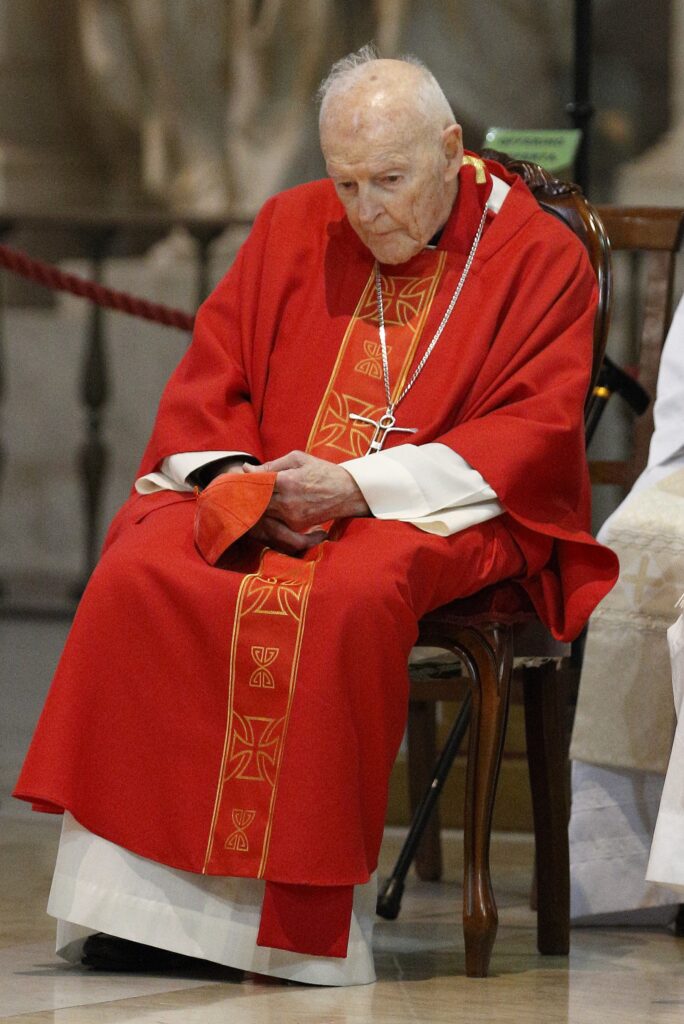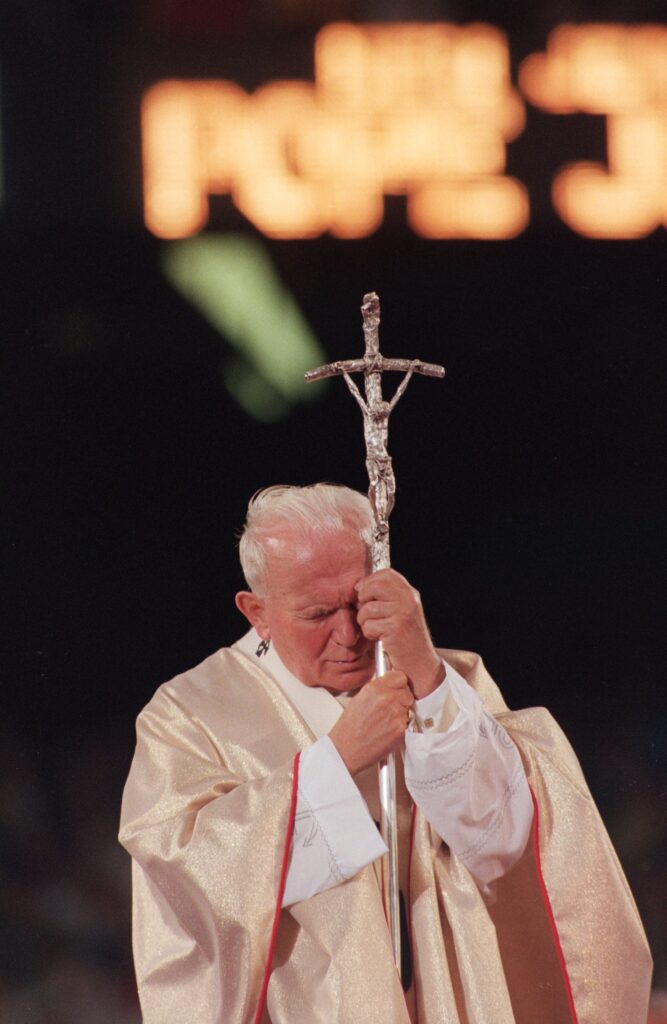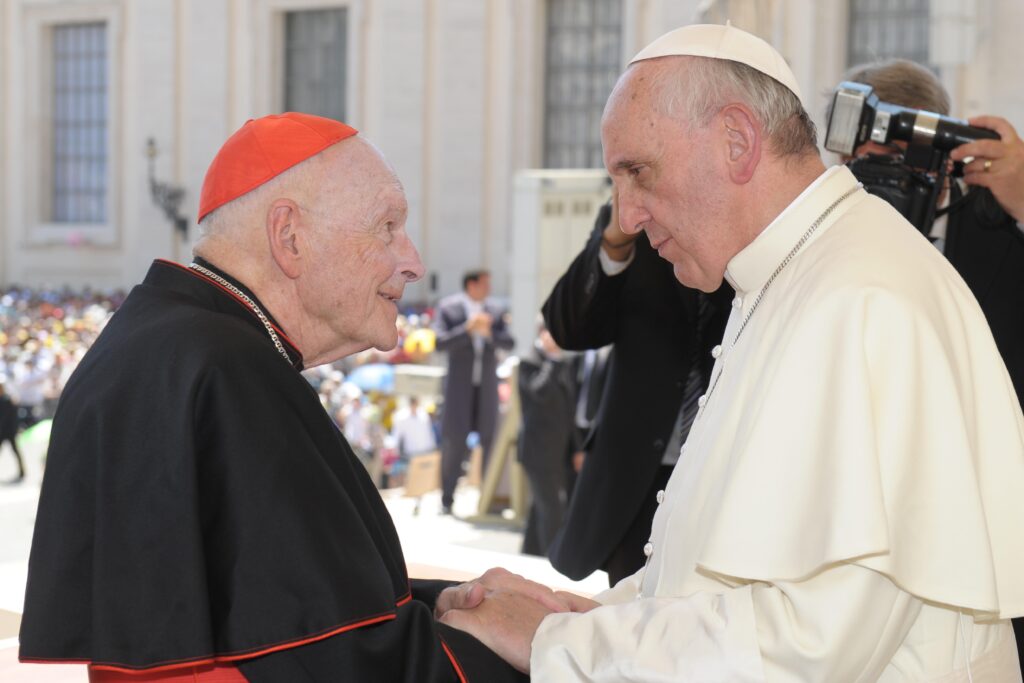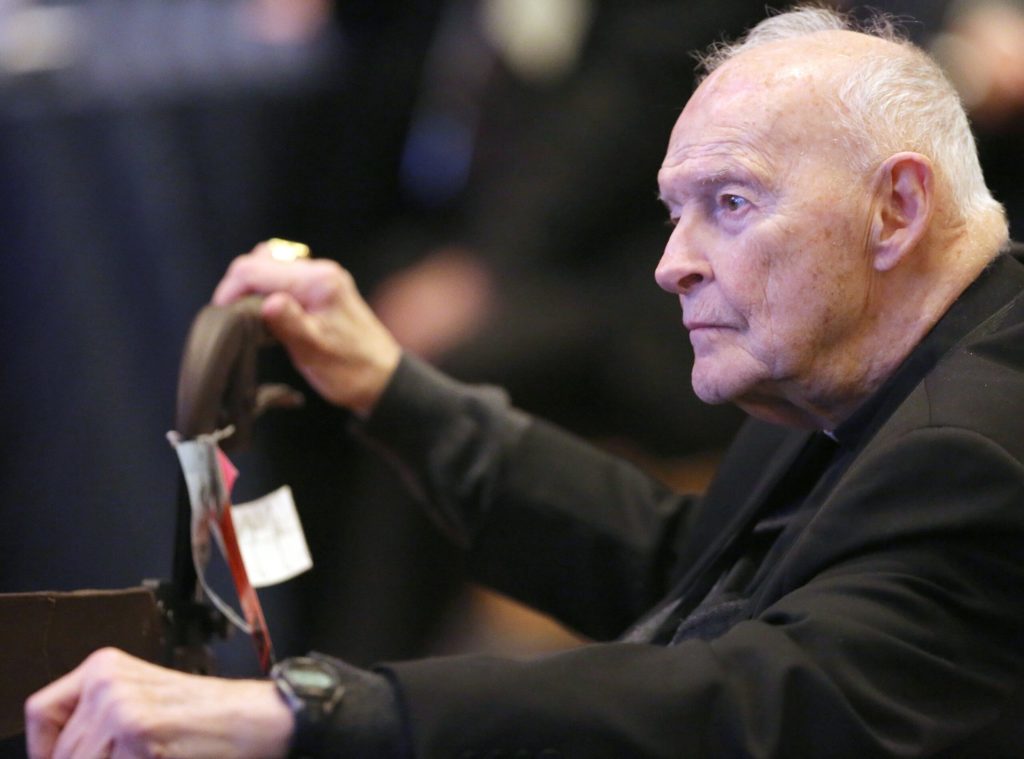Published after two years of work, the Report on the institutional knowledge and decision-making process of the Holy See regarding former Cardinal Theodore Edgar Cardinal McCarrick (from 1930 to 2017)., initiated at the behest of Pope Francis on October 6, 2018.
It spans some 87 years, from 1930 to 2017.and does not skimp on the details of what the Holy See was able to learn, at the institutional level, about the former Cardinal Theodore Edgar Cardinal McCarrickreduced to the lay state by Pope Francis in February 2019. It is the Report circulating today in the Vatican, in which broad elements of the decision-making process that in July 2018 had already led the Holy Father to expel from the College of Cardinals the American prelate accused of repeated sexual abuse of seminarians, albeit dating back some fifty years.
How did it all start?
It was the Archdiocese of New York, in 2018.which revealed an investigation that had established a McCarrick's initial abuse of an altar boy and at the same time had made it known that, on the instructions of Pope Francis, the accused had been asked to "no longer publicly exercising his priestly ministry".

Born on July 7, 1930, McCarrick was appointed Auxiliary Bishop of New York in 1977, under the pontificate of Paul VI, and later Bishop of Metuchen in 1981, under John Paul II. He then became Archbishop of Newark in 1986 and Archbishop of Washington in 2000, becoming a Cardinal the following year. Benedict XVI had accepted his resignation for reasons of age in 2006.
But let us turn to the Report being circulated by the Holy See at this moment, when in Washington it is 8 o'clock in the morning. Published after two years of workstarted at the request of Pope Francis October 6, 2018, anticipated by a statement from Secretary of State Pietro Parolin.
The Reportin-depth research
It is undoubtedly a complex researchThe report, which has gathered material from the Holy See, the Nunciature in Washington and the Dioceses of the United States that have been involved in various ways in the matter, including information obtained from interviews with witnesses and persons informed of the facts.
"The invitation I would like to extend to all those who are looking for answers - declares Parolin - is to read the document in its entirety and not to think that you will find the truth in one part rather than another. Only from the global vision and knowledge, in its totality, of what has been reconstructed of the decision-making processes concerning former Cardinal McCarrick, will it be possible to understand what has happened.".
But it is no coincidence that the beginning of the presentation of the Report refers to what Pope Francis wrote in 2018 on the abuse of children in the Letter to the People of God: "With shame and arrogance, as an ecclesial community, we assumed that we did not know where we had to be, that we did not act in time to recognize the magnitude and seriousness of the damage that was being caused in so many lives.".
Evidently, what is clear from the Report is that something went wrong and it is not so much due to "procedures, including the appointment of bishops", but "the commitment and honesty of the persons concernedParolin explains, "involving their consciences in particular. Probably, and this is the hope of the Secretary of State, this initiative will help all those who participate in this type of election in the future to be "more aware of the weight of their decisions and omissions"learning "of the painful experiences of the past".
Transparency and rigor
Going into the points of the substantive document, which will take some time to read in full, what emerges in extreme synthesis is that in the McCarrick affair the Holy See has often acted on the basis of partial and incomplete information and that many choices that later turned out to be wrong were also the result of omissions and understatements even on the part of various persons.
On the other hand, reveals a very high dose of transparency - The result of a long road of commitment in this regard that began several years ago. It also states that does not want to leave any aspect of the matter aside and confirms the commitment of Pope Francis of wanting to go all the way even in this sad case that has stained and wounded the American Church.

Until 2017, meanwhile, there were no substantiated allegations of child abuse committed by McCarrick, despite the fact that some twenty years earlier (in the 1990s) anonymous letters had reached the Nunciature in Washington hinting at the case but that, for lack of clues, names or circumstances were unfortunately not considered credible.
The Report also shows that at all stages of the former Cardinal's ecclesiastical career, from his first candidacy for the episcopate in 1977 until the mid-1990s, none of the persons consulted had given negative indications about his moral conduct. Also on the occasion of St. John Paul II's trip to the U.S. in 1995, there were no "negative indications" about his moral conduct.impediments"by the bishops consulted by then Archbishop O'Connor of New York, to see if it was appropriate for the Pope to visit the city of which McCarrick was pastor (Newark), given that rumors had circulated about his deplorable behavior. among the seminarians and priests of his diocese.
Only caveats
Its own Cardinal O'Connor was the only one who in 1999 addressed a letter to the Apostolic Nuncio, before several other authoritative positive opinions, warning of the risk of scandal from a possible McCarrick appointment to the Washington office. Although he had no direct information, the then Archbishop of New York warned about rumors that the former cardinal had in the past shared a bed with young adults in the rectory and seminarians in a beach house.
John Paul II initially accepted the proposal of the then Nuncio to the USA. Gabriel Montalvo and the then Prefect of the Congregation of Bishops, Giovanni Battista Reto withdraw his candidacy. In August 2000, McCarrick, aware of the reservations about his candidacy, wrote to the Secretary of the Polish Pontiff, Stanislaw Dziwiszswearing that he had never had sexual relations with any person. John Paul II considered these declarations to be sincere and instructed the then Secretary of State Angelo Sodano to put McCarrick back on the list of candidates for the Washington post and choose him later.
The Report, which in its original English version is 449 pages long, is divided into 30 chapters, with the last chapters containing all the information and testimonies collected in the last two years, starting in 2018.
The research
In the meantime, up to the time of his appointment in Washington in 2000, no victim, adult or minor, had contacted the Holy See or the Nuncio to the United States. to expressly denounce the Archbishop. Nor did any report arrive during his episcopate there, until 2005, when accusations of harassment and Benedict XVI promptly asked him to resign from the episcopate. The Report confirms the remarks of the then Delegate of the Pontifical Representations to the Secretariat of State. Carlo Maria ViganòThe then Secretary of State of the United States, however, was unable to provide evidence. The then Secretary of State Tarcisio Bertone presented the matter to the Pontiff and, since he was now a cardinal who had resigned his office and since there were no appeals from minor victims, it was decided not to open a formal canonical trial to investigate the former archbishop of Washington, but instead to make "recommendations"to avoid travel and carry out representative activities, which McCarrick continued to do in various countries and also in Rome.
The surprising thing that emerges from the Report is that even the one who later became Apostolic Nuncio to the United States, Archbishop Viganò himself - who then made a scandal in August 2018 accusing Pope Francis of omission in the case and even asking for his resignation - at the express request of the then Prefect of the Congregation for Bishops, did not perform all the checks about a new complaint against the former cardinal that was brought to his attention in 2012 and did nothing to limit the activities and domestic travel of the same prelate.

The same happened even after he was elected Pope Francis, who was not given documents or testimony that would make him aware of the seriousness of the allegations, but only reported that there had been "rumors" and accusations of immoral behavior with adults at the time of his appointment in Washington.
Therefore, Francis did not feel the need to change "what their predecessors had established", although he began an immediate response as soon as a first accusation of abuse of a minor arose, and was then expelled from the College of Cardinals and finally dismissed from the clerical state, at the end of a due canonical trial.









